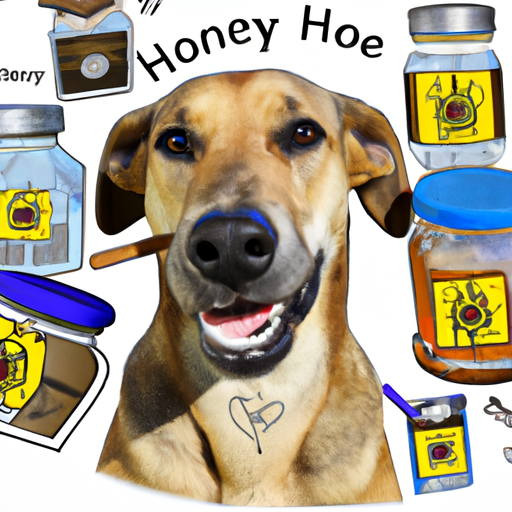Understanding the Basics
First of all, let’s get something straight. You, as a dedicated and caring pet parent, always want the best for your furry friend. But sometimes, it can be hard to decipher what human foods are safe for dogs to consume. Today, we’re focusing on honey, a naturally sweet substance that you may be tempted to share with your canine companion.
Honey, particularly in its raw form, can have numerous health benefits. It’s packed with vitamins such as A, B-complex, C, D, E, and K, along with minerals like potassium and calcium. But is it safe for dogs? The short answer is yes, but it’s not that simple. There are certain types of honey that are safer and more beneficial for dogs than others.
The Safest Types of Honey for Dogs
Not all honeys are created equal. Here is a ranking of the safest types of honey for dogs:
- Raw Honey: This is your best bet. Raw honey is unprocessed, maintaining all its medicinal properties. It’s a powerhouse of antioxidants and can help with allergies.
- Manuka Honey: This type of honey comes from New Zealand and is known for its potent antibacterial properties. It’s a bit pricy, but can be beneficial for dogs with digestive issues.
- Local Honey: If you can’t find raw or Manuka honey, local honey is a good alternative. It may help dogs with local allergies.
- Store-Bought Honey: This is the least recommended type. It’s often pasteurized, which means it’s lost most of its beneficial properties.
| Type of Honey | Ranking | Note |
|---|---|---|
| Raw Honey | 1 | Most beneficial |
| Manuka Honey | 2 | Good for digestive issues |
| Local Honey | 3 | Good for allergies |
| Store-Bought Honey | 4 | Least beneficial |
How to Serve Honey to Dogs
Now, you might be wondering, “How can I serve honey to my dog?” Serving honey to dogs is simple, but moderation is key. A small spoonful added to their food or given as a treat is enough.
The Risks of Honey for Dogs
Despite its potential benefits, honey should not be a significant part of your dog’s diet. Too much honey can lead to obesity and tooth decay. Also, puppies and dogs with compromised immune systems should not consume honey as it can contain spores of a bacterium that can lead to botulism, a rare but serious condition.
Frequently Asked Questions (FAQ)
Q: Can all dogs eat honey?
A: Generally, yes. But puppies and dogs with compromised immune systems should avoid it.
Q: How often can I give my dog honey?
A: It should be a treat, not a regular part of their diet. Once or twice a week is enough.
Q: Can honey help with my dog’s allergies?
A: It may help, particularly if the honey is local. However, talk to your vet before using honey as a treatment.
Remember, when introducing any new food to your dog’s diet, it’s always best to consult with your vet first. Your dog’s health and safety should always be your top priority.



